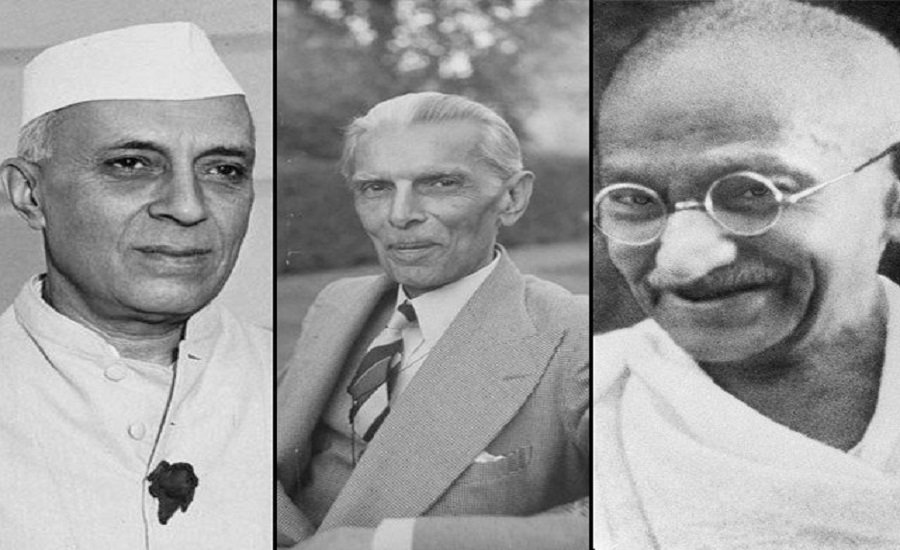History is simply not about the ideological choices; it is more about preserving the accounts of the past history and its main players irrespective of whether we love or hate them.
Dr JAVED JAMIL | Clarion India
IN August last year, I participated in an International Seminar at Banaras Hindu University. The keynote address was given by a Hindutva ideologue, Prof. Kapil Kapoor who has authored the Encyclopedia of Hinduism.
There were three noteworthy statements in his address. One was to emphasise the importance of Shastra Shaastra (War Scripture) in addition to Dharma Shastra. The second was to describe Advani’s Ayodhya Movement as the biggest historical point of the Hindu Unity. The third was to hold Gandhi and Nehru responsible for Partition and absolve Jinnah. After the end of the session, one friend of mine said to me, “Look, Prof. Kapoor even talked good of Jinnah” trying to impress upon me that Hindutva scholars are not averse to Muslims. I shot back, “I have least interest in Jinnah and do not even consider him a practicing Muslims”. Then some others joined and asked me about my analysis of why Partition took place. I said that “If you want me to know the answer in one sentence it would be that both Jinnah and Nehru wanted to be the Prime Minister of Undivided India but since it was physically impossible, they accepted Partition and became leaders of the two components of the Divided India”.
What is unfortunate is that people tend to hold only one or the other responsible, their choice depending upon their ideological or political links. Congress would say that RSS with leaders like Savarkar were responsible along with Jinnah. The present day RSS, keen to create a “Congress-Mukt” and more precisely “Gandhi/Nehru-Mukt Bharat” will argue that Congress was even more responsible than Jinnah. It is not that they have developed any fondness for Jinnah but their aversion to Nehru-Gandhi family has become more intense than that for Jinnah.
The truth is that all of them were responsible. They were all interested for one or the other reason in getting the country partitioned. Jinnah wanted to become Prime Minister, which was not acceptable for Nehru. The followers of Jinnah believed or pretended to believe that only a separate country of Muslims can fulfill their aspirations and their future will remain uncertain in a Hindu-majority country. The Congress rejected the demand of minority status for Muslims and resigned to Partition. RSS lobby wanted to realize their dream of Hindu Rashtra and believed that the Partition would make it easier. To their chagrin, a large portion of Indian Muslim community refused the idea of Partition and preferred to stay in India and strengthen its secular values.
It is ironical that Muslims who chose to stay despite a choice to migrate are now recurrently asked by the Hindutva leaders to migrate to Pakistan. And ironically, many of these Hindutva protagonists came from Pakistan, first abandoning their “matrabhumi” for the sake of their communal beliefs and then trying to monopolise the resources of the land where they migrated to. If anybody should go to Pakistan it is those who came from Pakistan. Similarly the Muslims who migrated to Pakistan abandoned their native land for their own selfish interests. The muhajirin there too are trying to monopolise power there and it will not be a bad idea if Pakistan Government too asks them to go back to their original lands. This will make both countries more secular and more peaceful than they are today.
While in their papers and private conferences, the Hindutva ideologues tend to blame Nehru-Gandhi more than Jinnah, when it comes to inciting communal hatred, they would not miss any opportunity to use the name of Jinnah to aggravate communal tensions. They are not at all concerned about removing the pictures or names of British rulers but are always keen to remove Muslim names and symbols; when it comes to Jinnah, it of course becomes easy for them to advance their narrative.
I happen to be a product of King George’s Medical College, Lucknow, and though in the past its name was changed twice, it still was reverted to the original name. Yogi Adityanath does not happen to say anything about this historical medical college. And of course numerous other examples have been cited in the media where the pictures of British monarchs are still very much in place.
History is simply not about the ideological choices; it is more about preserving the accounts of the past history and its main players irrespective of whether we love or hate them. If the students of King George’s Medical University want to preserve its name, it is not on account of any love for the British monarch; it is only to preserve its historical background which makes it easily recognizable as one of the oldest medical institutions of the country.
Let history remain what it is! Let us all try to build a cleaner, healthier and more peaceful future!
_____________________________________________________________



